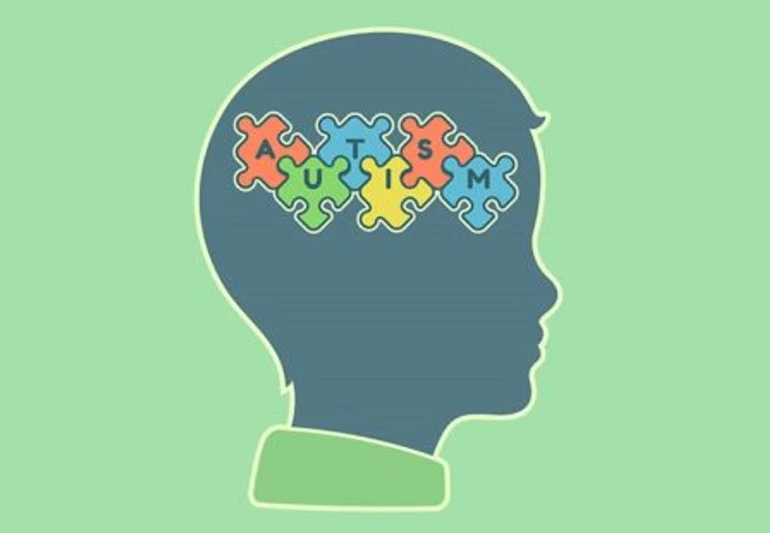How do you feel in social situations?

How do you feel about changes to your daily routine?

How do you feel about physical touch?

How do you react to loud or unexpected noises?

Do you have difficulty making and maintaining eye contact during conversations?

Do you tend to take things people say very literally?

Do you have any repetitive behaviors or routines that you feel compelled to follow?

Do you have a hard time understanding nonverbal cues like facial expressions or body language?

Do you have a strong interest in one or more specific topics or hobbies?

Do you have difficulty understanding or engaging in small talk?

Do you tend to get very upset or anxious when things don't go according to plan?

Do you find it difficult to understand other people's emotions?

Do you prefer to have a few close friends rather than a large group of acquaintances?

Do you struggle to understand sarcasm or jokes?

Do you have a tendency to repeat certain phrases or words over and over again?

Do you prefer to follow a strict schedule or routine?

Do you have difficulty understanding social norms or rules?

Do you enjoy physical activities or sports?

Do you have difficulty initiating or maintaining conversations with others?

Do you tend to focus on small details rather than the bigger picture?

Do you have difficulty understanding metaphors or figures of speech?

Do you prefer to have a set routine for your meals and eating habits?

Do you find it difficult to maintain eye contact during conversations?

Do you have a tendency to get fixated on certain topics or interests?

Do you find it difficult to understand nonverbal cues such as facial expressions or body language?

Do you prefer to stick to familiar routines and surroundings rather than trying new things?

Do you have difficulty understanding or interpreting social cues?

Do you have difficulty making or maintaining friendships?

How do you respond to changes in plans, even minor ones?

When engaging in a hobby or activity, how focused and absorbed do you become?

How do you feel about changes in your immediate environment, like rearranging furniture or decorations?

When faced with a problem, how do you approach finding a solution?

When engaged in a conversation, how often do you find yourself focusing intensely on one specific topic?

If interrupted, how easily can you return to what you were doing?

Is it difficult for you to express your thoughts and feelings?

Do you prefer texting over speaking over the phone?

You just got home after a date. How do you feel?

Do you feel like people often misunderstand you?

Do you find it hard to keep a job?

Last question! Someone is calling you... what do you do?

Do I Have Autism?
Low likelihood of autism

If you receive this result, it means that you have answered the quiz questions in a way that suggests a low likelihood of having autism. While this does not necessarily rule out the possibility of having autism, it indicates that your symptoms are not consistent with those typically seen in people with autism. It is important to note that many people with autism have mild or atypical symptoms, and that a diagnosis can only be made by a qualified healthcare professional. [DISPLAY_ULTIMATE_SOCIAL_ICONS]
Mild symptoms of autism

If you receive this result, it means that you have answered the quiz questions in a way that suggests mild symptoms of autism. While you may not meet all of the diagnostic criteria for autism, your answers indicate that you experience some difficulties with social interaction, communication, or behavior that are consistent with the autism spectrum. It is important to seek a professional evaluation if you have concerns about your symptoms, as early diagnosis and intervention can be beneficial. [DISPLAY_ULTIMATE_SOCIAL_ICONS]
Moderate symptoms of autism

If you receive this result, it means that you have answered the quiz questions in a way that suggests moderate symptoms of autism. Your symptoms may be causing significant impairment in social, communication, or behavioral domains, and may be impacting your daily life. It is important to seek a professional evaluation if you have concerns about your symptoms, as early diagnosis and intervention can be beneficial in improving outcomes and quality of life. [DISPLAY_ULTIMATE_SOCIAL_ICONS]
High likelihood of autism

If you receive this result, it means that you have answered the quiz questions in a way that suggests a high likelihood of having autism. Your symptoms may be severe and impacting multiple areas of your life, including social interaction, communication, and behavior. It is important to seek a professional evaluation if you have concerns about your symptoms, as early diagnosis and intervention can be beneficial in improving outcomes and quality of life. There are many effective treatments and interventions available for people with autism, and getting a diagnosis can help you access the support and resources you need. [DISPLAY_ULTIMATE_SOCIAL_ICONS]